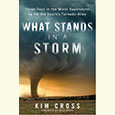Students of Reinvention
In Holly LeCraw’s The Half Brother, a Southern teacher seeks reinvention in a New England boarding school
In Holly LeCraw’s The Half Brother, Atlanta-raised Charlie Garrett arrives at his first teaching post in a wealthy New England boarding school seeking little more from his new life than the chance for reinvention. As he prepares for his first teaching job after graduating from Harvard, Charlie has no clear idea what kind of future he wants. But he finds himself drawn into the many traditions of the Abbott School, which he describes as “a place genteelly clinging to the second tier, New-England-boarding-schools-wise.”
 Charlie may lack focus, but he does feel a strong desire to remake himself in the refined manner of the professors he meets. He believes he must create an airtight persona of formality—so much so that the voice of his own narration consistently bears that mark. Even when he relates deeply intimate thoughts and encounters, he maintains a crisp, sometimes wry surface that offers a certain degree of distance from readers and from himself.
Charlie may lack focus, but he does feel a strong desire to remake himself in the refined manner of the professors he meets. He believes he must create an airtight persona of formality—so much so that the voice of his own narration consistently bears that mark. Even when he relates deeply intimate thoughts and encounters, he maintains a crisp, sometimes wry surface that offers a certain degree of distance from readers and from himself.
The desire for personal transformation—or just for a fresh start in a new town—becomes a prominent concern for the whole cast of characters in The Half Brother. The degree to which they can achieve this reinvention varies wildly, and the novel closely tracks the numerous consequences of following that desire. Back home, Charlie has always seen himself in opposition to his young half-brother, Nicky, whose charm, beauty, and guileless openness has cleared every obstacle in his path. But Nicky himself is driven by a “porous” sense of empathy that often steers him into danger. Charlie has always cut a less glamorous figure by contrast, and though he loves his brother, he remains keenly aware of how differently they are perceived.
Before his stepfather joined the family, Charlie and his proud, elusive mother Anita had created a self-contained life, one founded on the story of Charlie’s father’s death in Vietnam. Once Anita marries into the well-to-do Satterthwaite family, however, these humble origins become hushed but not forgotten, folded into the vague past. Young Nicky’s charms—as well as his status as a true Satterthwaite—underscore the contrasts Charlie perceives between them. Despite his stepfather’s love and financial help, Charlie knows that he’ll never find true acceptance in their privileged Atlanta life. In New England, he must find his footing in another wealthy setting, but the feelings of inadequacy and dislocation follow him there. And then Nicky comes roaring into the center of Charlie’s life at the Abbott School, poised to upend everything Charlie has struggled to create for himself.
 During Charlie’s first years at Abbott, he is surprised to observe how the job changes him, giving him confidence that eventually feels authentic. His students play a formative role in deepening his sense of identity: “I had not expected to feel my own self slowly emerging as I tried to draw out theirs. I had not expected to love anyone, is what I’m saying. Sometimes they looked at me in amazement at what came out of their mouths.”
During Charlie’s first years at Abbott, he is surprised to observe how the job changes him, giving him confidence that eventually feels authentic. His students play a formative role in deepening his sense of identity: “I had not expected to feel my own self slowly emerging as I tried to draw out theirs. I had not expected to love anyone, is what I’m saying. Sometimes they looked at me in amazement at what came out of their mouths.”
Despite his rewarding new life, Charlie remains susceptible to the pull of cultured Southern families, and he soon falls under the sway of Preston Bankhead, the school’s vaguely troubled chaplain, and Bankhead’s young daughter, May. Charlie’s entanglement with the Bankheads sets into motion a sequence of questionable choices and unearthed family secrets.
Within each of these characters, an inescapable tension exists between their notions of their own fates and the surprising disruptions that funnel their lives down alternate paths. These diversions can result in happy accidents, like Charlie’s unexpected love for teaching. Other times they yield life-changing trauma. Nicky in particular tends to chase risky visions of what his fate ought to be, only to see it crash: “He’d made a bet and lost. He’d been looking for a present so intense it would envelop him, and now he had a moment he could never leave.”
LeCraw’s thoughtful depiction of her characters’ reactions to their fates is what prevents the dramatic events and revelations of The Half Brother from unfolding in ways that might easily feel doomed in a predetermined way. These characters keep big secrets from each other, for reasons that ultimately feel earned as well as poignant. As they weather loss and upheaval, they never stop trying to understand themselves and one another. Even in the face of defeat, they remain open to the possibilities of change and renewal.

Emily Choate holds an M.F.A. from Sarah Lawrence College. Her fiction is forthcoming from The Florida Review and The Double Dealer, and her reviews have appeared in Yemassee and Tennessee Libraries. She lives in Nashville, where she’s working on a novel.


